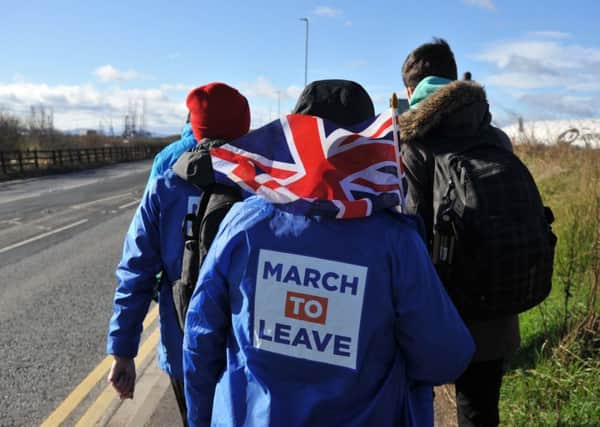Qari Asim: How religion can help to heal Brexit divisions


Brexit has created impassioned arguments within friends and family, and those amongst my congregation. It has brought a sense of uncertainty and challenges to our communities that many did not expect.
It is potentially a story of discontinuity, disconnection, and the evolution of a society and economy in which feeling ‘left behind’ has become an endemic, complex and structural problem; no community has been immune to the challenges it has presented.
Advertisement
Hide AdAdvertisement
Hide AdWhen it came to the referendum millions of people on both sides voted for what they believed to be the right choice for our country, so we are not going to achieve a ‘perfect deal’ for everyone.
But while we did not all reach the same conclusion, the deep love for the UK, its future and its residents was a consideration for everyone who participated in the referendum.
A debate that simply re-runs a ‘leave vs remain’ argument, while cathartic, marginalises the many who are desperate to find a way forward.
In order to allow the country to heal and to bring our communities back together we must refocus the conversation and seek to understand the drivers behind underlying social issues which have now come to the surface.
Advertisement
Hide AdAdvertisement
Hide AdIt will require some self-reflection, with consideration given to the political economy and social movements that drove Brexit into being in the first place. But it also needs solutions that are not from the top down, but driven from the grassroots, through our communities and embedded in compassion. And in driving change there exists an important role for faith institutions, religious leaders, and local networks to be part of the solution.
Faith can play a strong role in reframing narratives, bringing people together and enabling communities to build pride and a sense of belonging.
The foundation of all religions is the commandment, first to love God and second to “love your neighbour as yourself”. And not only my faith but all faiths, teach us compassion, mercy, and love. As well as a fundamental belief of living together in harmony, welcoming and treating with respect those who may not share our background or experiences.
Yet through the Brexit debate, we seem to have lost this sense of our shared values and that desire to achieve a common good. With much focus on migration concerns and a rise in hate crime, our differences have never seemed so apparent and our similarities forgotten. But we cannot allow those who are using polarised narratives and hate-filled rhetoric to divide our society, win.
Advertisement
Hide AdAdvertisement
Hide AdInstead we have a responsibility to embody the principles of tolerance and fairness that make Britain ‘great’. It is not the time to turn against your neighbour or to blame the ‘other’, but to focus on the progressive values of inclusivity and tolerance, which have been a part of British fabric for centuries. Our industries were built on migration and our diverse cultures, and supportive communities are at the core of life in this country. We should remember that.
The process of healing through faith has already started. Archbishop of Canterbury Justin Welby has asked people of all opinions to get together at churches across the country over the last weekend of the month (March 30 and 31). Offering a chance to drink cups of tea together, to pray and consider what the future of Britain could look like. Through a similar initiative, Mosques in the first week of April will also be opening up the discussion on Brexit, with the aim to share opinions, learn from each other and reconcile differences. More importantly to explore how we can rebuild the British identity around our shared values.
Islam teaches us compassion and understanding; it encourages us to strive for positivity.
Mosques across Yorkshire and up and down the country, are conducting Friday sermon that prays for and calls for national unity as well as using their links with the local community to spread a message of hope and show how fears can be tackled through faith.
Advertisement
Hide AdAdvertisement
Hide AdFollowing Britain’s withdrawal from the EU, we have the opportunity for a new and inclusive Britain to emerge, reflecting the priorities of all society.
And I have absolute confidence that positivity, optimism, shared values and a commitment to one another will help heal our hearts, and bridge gaps in our homes, neighbourhoods and the country.
So with this thought, my closing prayer is that we all find wisdom, courage and compassion for reconciliation and a way to succeed together.
Qari Asim is a Leeds imam. He is chair of Mosques & Imams National Advisory Board.